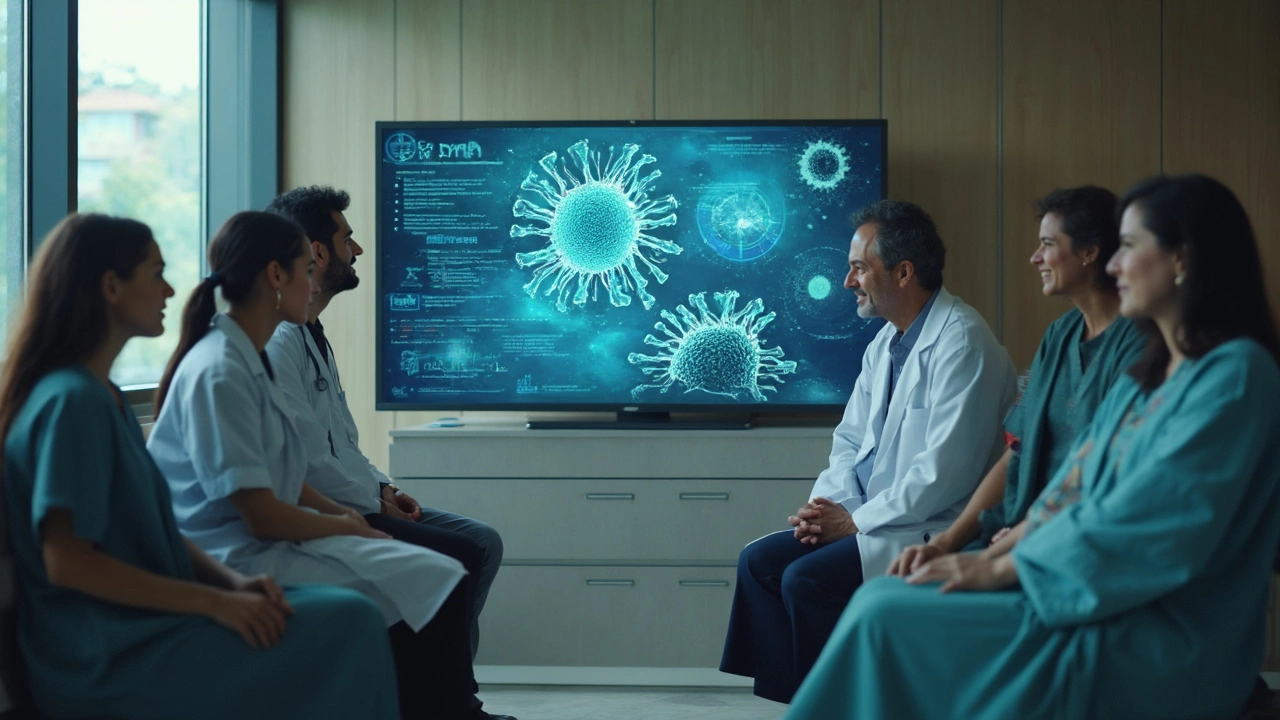Some cancers still have no cure, even with the latest treatments. This article breaks down why certain cancers remain deadly and what that actually means for people diagnosed with them. You'll learn about the types of cancer still considered incurable, what current treatments can do, and where hope and research are heading. Plus, get practical advice for navigating tough news and making decisions. Think of it as a straight-talking guide for a topic that’s as serious as it gets.
Read MoreUncurable Cancer: Understanding the Reality and Finding Hope
If you or a loved one has been told the cancer is uncurable, the words can feel like a wall. It’s natural to feel scared, angry, or lost. The good news is that “uncurable” doesn’t mean “no help at all.” It simply means the disease can’t be eliminated with current treatments, but you can still manage symptoms, stay active, and enjoy meaningful moments.
What “Uncurable” Really Means
Doctors use the term when they think the tumor can’t be fully removed or eradicated with surgery, chemo, or radiation. It often applies to cancers that have spread far or have aggressive biology. However, many patients live months or even years with a good quality of life thanks to palliative care, targeted therapies, and lifestyle adjustments. The focus shifts from cure to control—keeping pain low, staying mobile, and preserving independence.
Living Well with Advanced Cancer
Start with a solid palliative‑care team. These specialists aren’t just for end‑of‑life; they help with pain relief, nutrition, emotional support, and planning. Ask your doctor about medications that smooth out aches without making you drowsy. Simple changes like a short walk each day, gentle stretching, or yoga can boost stamina and mood. Stay hydrated, eat small balanced meals, and talk to a dietitian about foods that support energy without upsetting the stomach.
Emotional health matters as much as physical health. Share your feelings with family, friends, or a counselor. Many find comfort in support groups—online or in‑person—where people understand the day‑to‑day challenges. Journaling, meditation, or listening to soothing music can also lower stress. Remember, it’s okay to ask for help with everyday tasks; hiring a caregiver or using community services removes a big burden.
Plan ahead, but stay flexible. Write down your wishes for medical treatment, pain management, and end‑of‑life care, then share them with your loved ones. Having a clear plan means fewer surprises later, and it gives you control over decisions that matter. At the same time, keep room for spontaneous joys—a family dinner, a short trip, or a hobby you love.
Keep an eye on new therapies. Clinical trials often explore emerging drugs or combinations that can slow disease progression and improve comfort. Talk to your oncologist about whether a trial fits your situation. Even if the goal isn’t a cure, many trials aim to extend life with fewer side effects.
Finally, celebrate small victories. A day without pain, a good night’s sleep, or a walk in the park are wins worth noting. By focusing on what you can control—pain relief, nutrition, activity, and emotional support—you turn “uncurable” into a manageable reality rather than a hopeless label.





